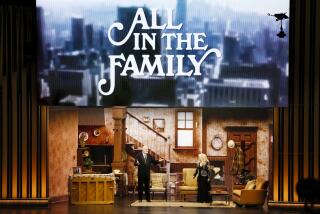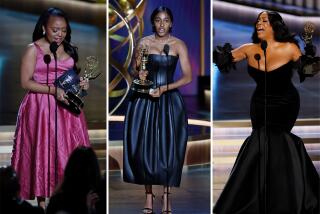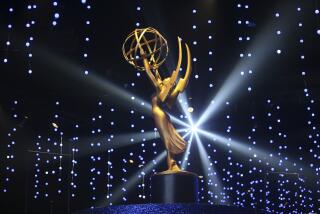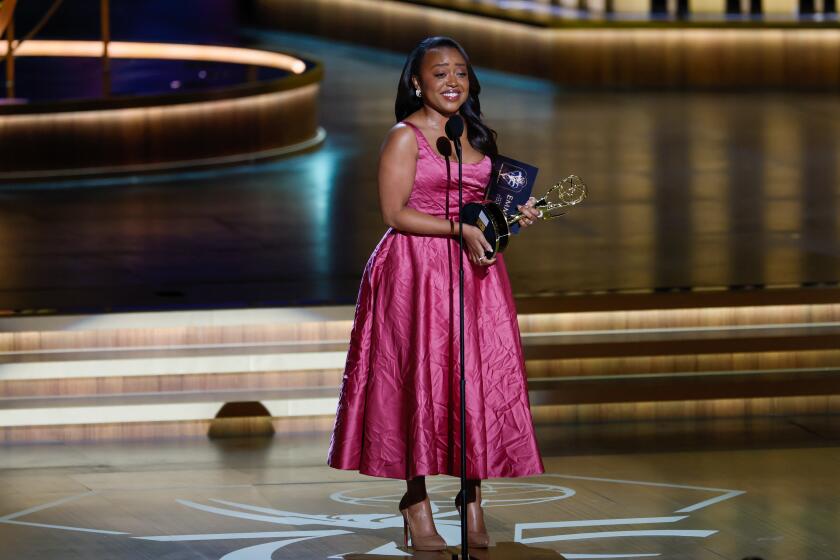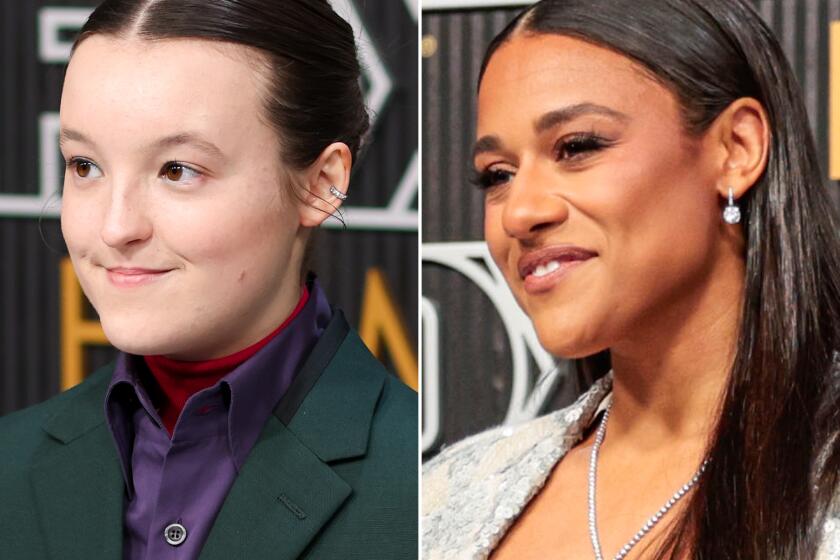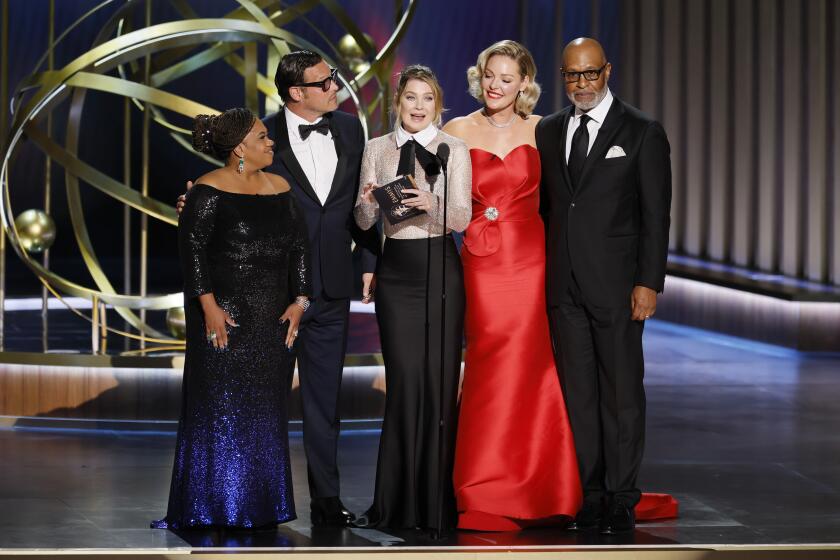Gold Standard: An amped-up Emmy campaign season sees big names, bigger parties and some rule breakers
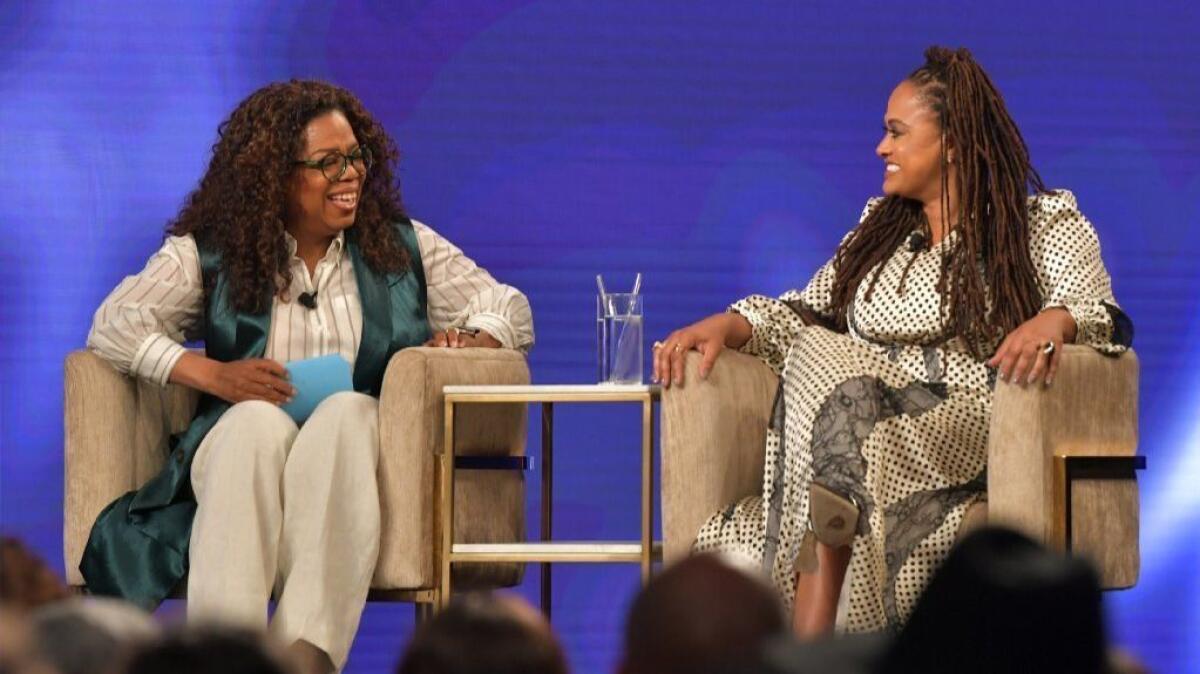
Voting for this year’s Emmy nominations runs through Monday, the culmination of a three-month deluge of premieres and parties, star-studded conversations and gluten-free grub as well as a small scandal that resulted in a handful of votes being disqualified.
Television Academy members might have needed a week and a half just to scroll through their ballots this year. Some 2,313 actors submitted their work for Emmy consideration, making the act of voting an exercise in attrition.
That mind-numbing volume — the ballot also lists 732 programs, including 165 drama series and 108 comedies — continues to force television networks and streamers to go to great lengths to remind voters to consider their shows — or simply to remember they exist.
Netflix enlisted Martin Scorsese to interview Bruce Springsteen at the kickoff event for its Emmy awards space in May, plugging the filmed version of the rocker’s Broadway show. (Maybe Springsteen will return the favor later this year when it comes time to campaign Scorsese’s expensive Netflix Oscar contender “The Irishman.”)
Amazon Studios again took over the Hollywood Athletic Club, hosting events for such contenders as “The Marvelous Mrs. Maisel” and “Homecoming.” Voters and guests could appraise the 15 “Marvelous Mrs. Maisel” dresses on display, sit on the “Catastrophe” couch and then snag a free “Maisel” lipstick on their way out the door. Amazon is also partnering with the online food delivery service Postmates, offering Angelenos and New Yorkers a free “Maisel” meal pack through Friday — proof you don’t have to be an Emmy voter these days to get a free pastrami sandwich.
BUZZMETER: Experts predict the Emmy nominations »
Do these promotions work? Zach Galifianakis manned a Hollywood Arby’s takeout window for several hours last year, handing out dozens of roast beef sandwiches to Television Academy members. Maybe the meal didn’t sit well. After being nominated for “Baskets” in 2017, Galifianakis wasn’t among last year’s nominees.
This year’s Emmy races feature stuffed categories across the board, with new shows like “Pose” and “Russian Doll” battling for spots and past favorites “Game of Thrones” and “Veep” looking to go out on top. Television Academy voters, like balloters in other elections, tend to reward incumbents. But that doesn’t mean the rest of the pack doesn’t want to take a shot.
“You do these events because you have to,” says one veteran Emmy campaigner, who asked not to be named given the sensitivity of campaigns. “Showrunners pay attention to what’s being promoted. You can’t tell them their program isn’t worth the effort.”
The for-your-consideration events tend to be earnest affairs, featuring a screening, followed by a rote Q&A and then a reception, affording voters the chance, per one network consultant, to “put three sliders in their bag so they can have something for lunch the next day.”
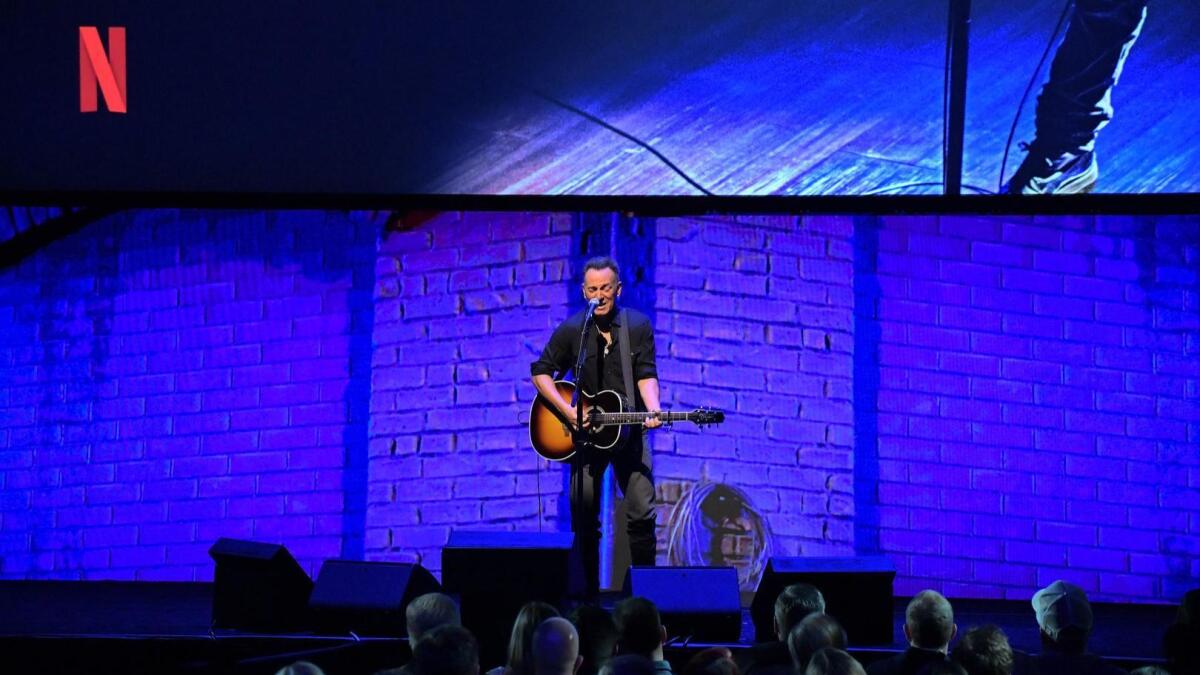
THE ENVELOPE: News and features about awards season »
Sometimes, though, the talent displays a winning self-awareness about the campaign stops. Springsteen performed a couple songs after his conversation with Scorsese, noting with a laugh that he was here “begging complete strangers for their votes.”
Julia Roberts, speaking at Amazon’s “Homecoming” panel, deflected praise like it was her superpower, joking at one point that she shouldn’t be “taking away from how impressed we felt about ourselves.”
That “Homecoming” panel took place on a Sunday morning, drawing hundreds of the academy’s 24,000-plus voting members. Earlier this year, the TV Academy, responding to gripes from networks and streamers, instituted a lottery system to attend these Emmy events, presumably so the same people wouldn’t dominate the turnout night after night.
But you have to wonder: Who would have the time? This year, 220 shows requested an Emmy event slot, leading the academy to allow, for the first time, competitive events every night of the week as well as weekend afternoons, a concession to the glut of programming competing for voters’ attention. Academy President Maury McIntyre said there were 40% more events than last year. Most, he added, sold out.
Netflix, in its second year of taking over sound stages at Hollywood’s Raleigh Studios for a six-week Emmy promotional run, held events almost nightly at its 475-seat theater, enlisting the likes of Oprah Winfrey, Scorsese and director Paul Thomas Anderson to lead the conversations.
These pairings often led to memorable exchanges, sometimes emotional (Winfrey interviewing the Central Park Five, following a screening of the finale of Ava DuVernay’s “When They See Us”), sometimes funny (Adam Sandler good-naturedly saying that even with all the movies he’s written and directed, his late father’s favorite was Anderson directing him in “Punch-Drunk Love”).
Meanwhile, National Geographic leased the Greek Theatre, showcasing its Emmy contenders with a concert and festival experience. Mandy Moore sang a song during a “This Is Us” concert and panel at the John Anson Ford Amphitheatre. And for a week, voters and fans could relax in Archie and Edith Bunker’s iconic living room chairs at the Westfield Century City mall, a nod to the ABC “Live in Front of a Studio Audience” reboot of “All in the Family.”
Ahead of nominations balloting, the academy also clarified its rules prohibiting block voting and quid-pro-quo deal-making and then, last week, brought the hammer down on an unspecified number of voters found guilty of violating the regulations.
Several television network executives, speaking on background, said the disqualifications likely came after a social media post or group email exchange touting specific Emmy contenders came to the Television Academy’s attention. McIntyre didn’t want to get into specifics, noting only that the offending actions were “very concerning” and that the academy believed it needed to take action.
“We do not feel it would have damaged the level of the full competition, but the mere hint of this kind of thing could be damaging,” he said, adding that the industry was “good at policing itself.”
The shenanigans, along with the record number of events, speak to how much the Emmy continues to mean to the television industry, particularly in these times of fragmented viewership.
“There’s a lot of energy around the Emmys,” McIntyre says. “It’s a mark of excellence.”
Twitter: @glennwhipp
More to Read
The complete guide to home viewing
Get Screen Gab for everything about the TV shows and streaming movies everyone’s talking about.
You may occasionally receive promotional content from the Los Angeles Times.
